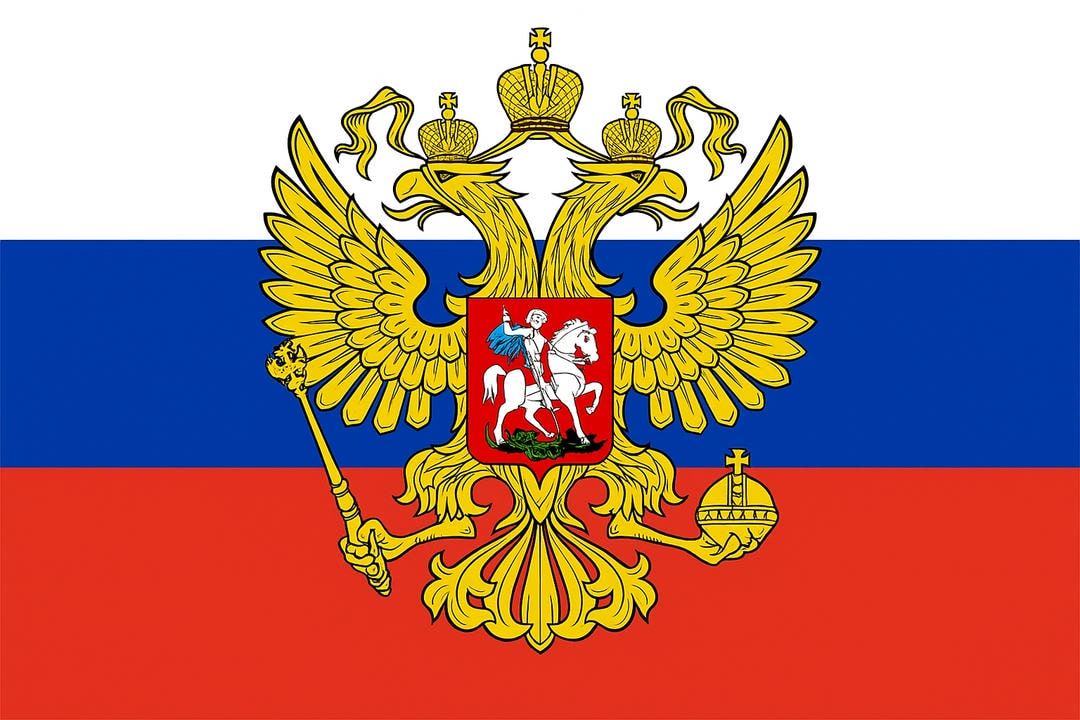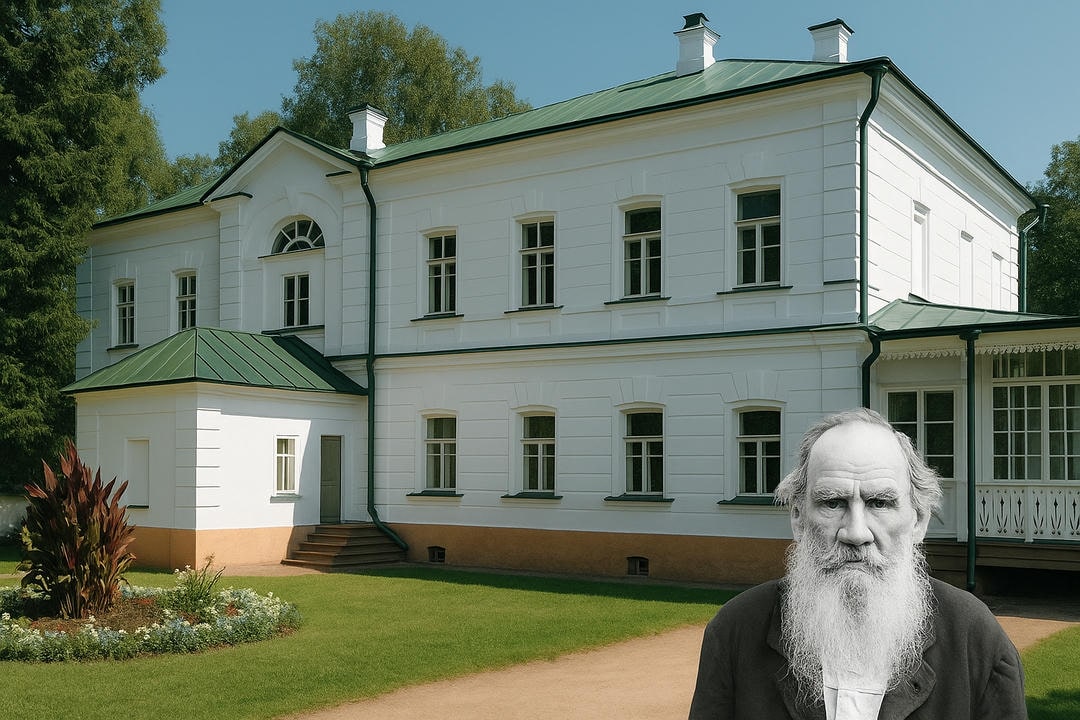The Russian language, with its intricate phonetic structure and expressive versatility, offers a unique perspective into a rich cultural tapestry. Its six-case grammatical system provides a level of nuanced communication that few languages can match, allowing for a vivid and precise expression of emotions. This linguistic complexity is not just a barrier but a gateway to understanding the profound literary traditions and cultural values embedded within the language. As we explore the lyrical beauty and historical depth of Russian, one might wonder how these elements intertwine to shape such a powerful medium of human expression.
Introduction

The Russian language, a member of the East Slavic group, holds a significant place in both the cultural and national identity of the Russian people.
Recognized for its rich vocabulary and expressive grammar, it is a cornerstone of Russian literature and global communication.
This introduction aims to explore the language’s profound impact on culture and its enduring importance in the modern world.
Overview of the Russian language
One might find the Russian language to be a fascinating subject of study, given its profound role in both historical and contemporary contexts. Rooted deeply in Slavic origins, the Russian language boasts a complex and rich history that reflects its evolution over centuries.
Emerging from Old East Slavic, it has been shaped by various influences, including Old Church Slavonic, which played a pivotal role in its early development.
Russian dialects further add to its linguistic diversity, offering a tapestry of regional variations that enrich the language’s expressive potential. The evolution of the language has not been without challenges; however, it has adapted and thrived, maintaining relevance in modern usage despite geopolitical shifts and changing global dynamics.
Today, Russian remains a critical language, not only in the Russian Federation but also as a medium of international diplomacy and commerce.
Yet, the linguistic challenges it faces, such as regional decline and the pressures of globalization, call for concerted efforts to preserve its unique character. Understanding Russian’s journey from its Slavic roots to its current form illustrates its enduring significance and the beauty inherent in its complexity.
Importance of language in culture
Language serves as a cornerstone of cultural identity and cohesion, shaping the ways in which communities understand and interact with the world. In Russia, the language is more than a mere tool for communication; it is a living repository of the nation’s history, values, and collective memory.
Language preservation is critical in maintaining this cultural identity, ensuring that the nuances and traditions embedded in speech are passed down through generations.
The Russian language fosters social cohesion by providing a shared medium through which people can connect, express themselves, and engage in collective experiences. Its communication styles, rich in idiomatic expressions and emotional depth, allow for a profound exchange of ideas and sentiments, reinforcing community bonds.
As language evolves, it reflects the changing realities and aspirations of its speakers. The evolution of the Russian language, shaped by historical events and cultural shifts, continues to adapt while preserving its core essence.
This dynamic interplay between tradition and modernity underscores the importance of language in culture, offering a sense of continuity and belonging in an ever-changing world. Understanding and appreciating this significance can empower individuals and communities to embrace their linguistic heritage with pride.
Phonetic and Lyrical Qualities
The Russian language is renowned for its distinctive phonetic system, characterized by a rich array of consonants and vowels that contribute to its unique sound.
This phonetic richness enhances the musicality found in Russian poetry and prose, allowing authors and poets to craft works that resonate deeply with emotional and rhythmic precision.
The interplay of sounds in the language creates a lyrical quality that is both enchanting and profound.
The sound system of Russian
Renowned for its melodic and rhythmic qualities, the sound system of the Russian language captivates listeners with its unique phonetic structure. Central to its allure are the phonetic variations that distinguish Russian from other languages. Vowel harmony plays a pivotal role, creating a fluid and cohesive auditory experience. The language’s five vowel sounds can change based on their phonetic environment, contributing to a distinctive and harmonious vocal landscape.
Consonant clusters, a hallmark of Russian phonology, present both a challenge and a charm. These clusters often involve complex arrangements of consonants, which can be intimidating to non-native speakers but add a rhythmic quality to the language.
Stress patterns in Russian are unpredictable, with stress capable of falling on any syllable in a word. This variability in stress not only distinguishes word meanings but also imparts a lyrical and dynamic rhythm.
Intonation effects further enhance the expressiveness of Russian. The language employs a wide range of intonational contours to convey emotions, attitudes, and nuances.
These phonetic features collectively create a rich tapestry of sound, enabling speakers to express themselves with unparalleled depth and subtlety.
Musicality in poetry and prose
Russian literature, with its deep-rooted tradition of poetry and prose, showcases the musicality inherent in the language’s phonetic and lyrical qualities. Russian poets and writers, from Pushkin to Akhmatova, skillfully employ musical rhythm and poetic devices to create works that resonate deeply. The language’s extensive use of assonance, consonance, and alliteration enriches the auditory experience, allowing readers to feel the emotional cadence embedded within the verses.
In prose, the lyrical themes often reflect the rhythmic flow characteristic of Russian speech patterns. Authors like Dostoevsky and Tolstoy adeptly manipulate sentence structure to mirror natural spoken rhythms, thereby infusing their narratives with an almost poetic quality. This use of sound symbolism not only enhances the aesthetic appeal but also deepens the reader’s emotional engagement.
The Russian language’s phonetic versatility allows for a dynamic interplay of sounds, contributing to its distinct musical rhythm. This rhythmic quality, combined with intricate poetic devices, creates a symphony of words that captivates readers and listeners alike.
Through its unique blend of sound and meaning, Russian literature exemplifies the profound beauty and freedom found in its musicality.
Expressive Flexibility

The expressive flexibility of the Russian language is exemplified by its versatile word order, which can be adjusted to emphasize different parts of a sentence without changing its fundamental meaning.
This linguistic feature allows speakers to highlight specific emotions or nuances, making the language particularly effective for poetic and literary expression.
Furthermore, Russian’s rich array of expressive phrases showcases its capacity to convey complex sentiments succinctly and vividly.
Word order and emphasis
One of the most enchanting aspects of the Russian language is its expressive flexibility, particularly evident in its varied word order. Unlike English, where a fixed word order is essential for conveying meaning, Russian offers speakers a liberating degree of grammatical flexibility. This allows for the rearrangement of words within a sentence to shift emphasis, thereby enhancing expressive nuances without altering the basic contextual meaning.
For example, in Russian, one can say “Я люблю тебя” (I love you) or “Тебя люблю я” (I love you) to emphasize different parts of the sentence. This flexibility is not merely a stylistic choice but a powerful tool for nuanced expression. It enables speakers to highlight specific elements, convey subtle emotional undertones, and adapt their speech to various contexts with ease.
This dynamic word order imbues the language with a poetic quality, allowing for a rich tapestry of expression that resonates deeply with those who value freedom in communication.
Examples of expressive phrases
A myriad of expressive phrases showcases the inherent flexibility and richness of the Russian language. This linguistic beauty is evident in its figurative expressions and idiomatic phrases, which often draw from deep cultural references and historical contexts.
For instance, the idiom “вешать лапшу на уши” (literally, “to hang noodles on the ears”) cleverly conveys the act of deceiving someone with sweet talk, reflecting a vivid cultural imagery.
Proverbs play a significant role in Russian communication, encapsulating wisdom and moral lessons in concise forms. Phrases like “в гостях хорошо, а дома лучше” (there’s no place like home) resonate universally, yet they carry a unique Russian sentiment towards family and personal space.
The poetic imagery in Russian expressions can evoke profound emotions and create memorable impressions. Take, for example, “скучать как по белому свету” (to miss someone like the white world), which beautifully illustrates deep longing.
Such examples highlight the expressive flexibility of the Russian language, allowing speakers to convey complex emotions and ideas through a rich tapestry of linguistic tools. These elements not only enhance communication but also preserve and celebrate cultural heritage.
Rich Vocabulary and Word Formation
The richness of the Russian vocabulary is exemplified by its intricate system of derivation and diminutives, which allow speakers to create nuanced variations of words.
This feature not only enriches the language but also imbues it with deep emotional connotations, enabling more precise and expressive communication.
These linguistic tools are fundamental in capturing the subtleties of human experience, making Russian a uniquely expressive language.
Derivation and diminutives
Frequently celebrated for its linguistic creativity, Russian’s system of derivation and diminutives exemplifies the language’s rich vocabulary and intricate word formation processes. The language’s ability to create new meanings through derivation processes is an indication of its dynamic nature. By utilizing a variety of suffixes and prefixes, Russian speakers can modify root words to express subtle nuances, change grammatical categories, and convey different shades of meaning.
Diminutive forms in Russian, crafted through specific suffix usage, are particularly significant. These forms often add a layer of affection, familiarity, or endearment to the base word, reflecting cultural nuances in interpersonal communication. For instance, the word “дом” (house) can become “домик” (little house), invoking a sense of coziness or fondness. This linguistic feature highlights the importance of emotional and social context in the language.
Prefix variations further enrich the Russian lexicon, allowing for the creation of numerous derivatives from a single root. The interplay of prefixes and suffixes in Russian not only expands the vocabulary but also enhances the expressive power of the language.
This complex system of word formation underscores the linguistic freedom inherent in Russian, enabling speakers to articulate a wide array of concepts and emotions with precision and creativity.
Emotional connotations in vocabulary
Rich in emotional connotations, the Russian language’s vocabulary and word formation processes enable speakers to convey nuanced feelings and states of mind with remarkable precision. This linguistic capability is evident in the language’s emotional depth, which allows individuals to articulate complex emotions through a variety of nuanced expressions.
The richness of Russian vocabulary is not just an indication of its extensive lexicon but also to its ability to reflect cultural heritage and societal values. Expressive idioms in Russian, for example, often encapsulate deep-seated emotions and cultural reflections, offering insights into the collective psyche of its speakers.
The use of diminutives and augmentatives further enhances this expressive capacity, enabling speakers to subtly adjust meaning and emotional tone. Whether conveying affection, disdain, or irony, the Russian language provides a versatile toolkit for emotional articulation.
Moreover, the intricate word formation processes, involving prefixes and suffixes, facilitate the creation of words that are rich in emotional nuance. This ability to modify words to precise emotional connotations guarantees that speakers can communicate their inner states with freedom and authenticity, making Russian a language that truly captures the human experience in all its complexity.
Grammatical Complexity

Russian grammar is renowned for its intricate structure, which includes an extensive system of noun cases that dictate the role of words in a sentence.
The language employs six cases—nominative, genitive, dative, accusative, instrumental, and prepositional—each serving distinct syntactic and semantic functions.
This complexity not only enriches linguistic expression but also poses unique challenges and opportunities for learners and speakers.
Overview of Russian grammar
A notable aspect of the Russian language is its grammatical complexity, which both challenges and fascinates linguists and learners alike. Central to this complexity is the case system, which uses six cases to indicate the syntactical role of nouns, pronouns, and adjectives in a sentence. This system demands a high level of precision and attention to detail, offering both a challenge and a path to linguistic freedom through expressive potential.
Additionally, Russian employs verb aspects to indicate the completeness of an action, distinguishing between perfective and imperfective forms. This feature allows speakers to convey nuanced temporal relations, enhancing the language’s expressive richness.
Noun genders in Russian—masculine, feminine, and neuter—further add to its grammatical depth. These genders influence adjective agreement, requiring adjectives to match the gender, number, and case of the nouns they modify. Such rules might seem restrictive, but they grant learners a structured freedom to construct precise and varied expressions.
Lastly, prepositional phrases in Russian are pivotal in constructing meaning, often determining the case of the nouns they accompany. This intricate dance of grammar elements exemplifies the beauty and sophistication inherent in the Russian language, offering a unique linguistic journey to those willing to embrace its complexities.
The significance of cases
How does the case system contribute to the grammatical complexity and expressive potential of the Russian language? The Russian case system, consisting of six grammatical cases, is pivotal in shaping the language’s intricate structure and rich expressiveness.
Case usage in Russian dictates the relationships between words in a sentence, allowing for a flexible word order that can emphasize different elements without altering the fundamental meaning.
Grammatical cases in Russian include the nominative, genitive, dative, accusative, instrumental, and prepositional. Each case has specific case endings, which modify nouns, pronouns, and adjectives to indicate their syntactic roles. This system enables nuanced distinctions that foster precise communication and artistic expression.
For instance, the genitive case can denote possession, while the dative case often signifies the indirect object of an action, illustrating clear case relationships.
Case significance in Russian extends beyond mere grammatical function; it enhances the language’s poetic and rhetorical capabilities. By mastering the intricacies of case usage and case endings, speakers can craft sentences that resonate with deeper meaning and emotional subtleties, embodying the linguistic freedom and creative potential that define the beauty of the Russian language.
Cultural Significance
The cultural significance of the Russian language is profoundly shaped by its rich literary heritage, which has left an indelible mark on global literature.
Esteemed Russian authors such as Leo Tolstoy, Fyodor Dostoevsky, and Anton Chekhov have produced seminal works that not only highlight the expressive capabilities of the language but also explore deep philosophical and social themes.
Their contributions have cemented Russian literature’s status as a cornerstone of world culture, showcasing the language’s capacity to articulate complex human experiences.
Influence of literature on the language
Few elements have shaped the Russian language as profoundly as its literary tradition. The literary impact on Russian is unparalleled, transforming it into a medium capable of expressing profound philosophical and emotional depths. Through the employment of poetic devices, Russian literature has enriched the language with a nuanced expressiveness, enabling writers to convey intricate layers of meaning and emotion.
Narrative style in Russian literature has also played a considerable role in linguistic evolution. With its distinctive approach to storytelling, Russian literature has introduced complex character development and multifaceted plots, pushing the boundaries of the language and expanding its expressive potential. Authors have crafted characters with such psychological depth that their voices and dialogues have become integral to the way Russian is spoken and understood.
Moreover, the evolution of the Russian language has been considerably influenced by literary works that reflect and challenge societal norms. Through literature, the language has been refined and expanded, absorbing new terms, idioms, and stylistic elements that enrich everyday communication.
This symbiotic relationship between language and literature underlines the cultural significance of Russian as a living, evolving entity, continually shaped by its literary heritage.
Notable Russian authors and their works
Celebrating the contributions of notable Russian authors reveals the profound cultural significance embedded in their works. Russian literary movements, spanning from the Golden Age of Alexander Pushkin to the Silver Age of Anna Akhmatova, have shaped global literature profoundly.
The works of Leo Tolstoy and Fyodor Dostoevsky explore human psyche and moral dilemmas, offering timeless insights relevant to an audience seeking intellectual liberty.
Contemporary Russian literature continues this rich tradition, with authors like Lyudmila Ulitskaya and Victor Pelevin capturing the complexities of modern Russian life. Female Russian authors have emerged as powerful voices, with Svetlana Alexievich receiving the Nobel Prize in Literature, highlighting the importance of diverse perspectives in understanding societal intricacies.
Translation challenges persist, as the linguistic nuances and cultural contexts of Russian literature are often difficult to convey in other languages.
However, literary awards in Russia, such as the Russian Booker Prize, serve to recognize and promote exceptional talent, ensuring that their voices resonate beyond linguistic barriers.
In celebrating these authors and their works, we acknowledge the enduring influence of Russian literature in enriching our understanding of human experience, freedom, and cultural heritage.
Historical and Emotional Depth

The Russian language encapsulates a profound historical narrative, mirroring the nation’s centuries of cultural and political evolution.
This linguistic legacy is imbued with emotional depth, as the language’s rich vocabulary and expressive nuances allow speakers to convey a wide spectrum of feelings and experiences.
Consequently, everyday speech in Russian often carries historical connotations and emotional resonance that accentuate its unique beauty.
Language as a reflection of history
Throughout centuries, the Russian language has evolved as a profound reflection of the nation’s tumultuous history and rich cultural heritage. The language’s historical context reveals a dynamic evolution shaped by various influences, from the Mongol invasions to the reforms of Peter the Great. Each era left its indelible mark on the linguistic landscape, contributing to the robust identity that Russian speakers cherish today.
Language evolution in Russia underscores the depth of its cultural heritage. Old East Slavic, the forebear of modern Russian, absorbed elements from Old Church Slavonic, enriching its lexicon and syntactic structures. Such historical interplay forged a linguistic identity that mirrors the resilience and adaptability of the Russian people.
The societal impact of the Russian language is profound, extending beyond mere communication. It encapsulates the struggles, triumphs, and aspirations of a nation.
The linguistic shifts during pivotal moments in history, like the Bolshevik Revolution and the dissolution of the Soviet Union, reflect broader societal transformations. As a result, the Russian language is not just a means of expression but a living chronicle of a nation’s journey through time, embodying both its historical legacy and its quest for freedom and identity.
Emotional resonance in everyday speech
Russian, with its intricate grammatical structure and nuanced vocabulary, possesses an extraordinary ability to convey deep emotional resonance in everyday speech. This emotional expression is woven into the fabric of the language, allowing speakers to communicate sentiments with remarkable precision.
Everyday communication in Russian is rich with subtle inflections and variations that can convey a spectrum of emotions, from joy to sorrow, anger to compassion.
The capacity for nuanced dialogue in Russian is deeply rooted in its historical and cultural context. The language’s extensive use of diminutives, for instance, reflects a cultural connection that emphasizes warmth and familiarity. Words can be modified to soften or intensify emotional impact, enabling speakers to engage in sentiment analysis effortlessly during conversations.
Moreover, the flexibility of Russian grammar, with its varied word order and extensive use of prefixes and suffixes, allows for a dynamic range of emotional expression. This linguistic versatility fosters deeper interpersonal connections, as the language can precisely mirror the speaker’s inner emotional landscape.
Consequently, Russian not only serves as a means of communication but also as a powerful tool for emotional resonance in everyday life, enriching the human experience.




